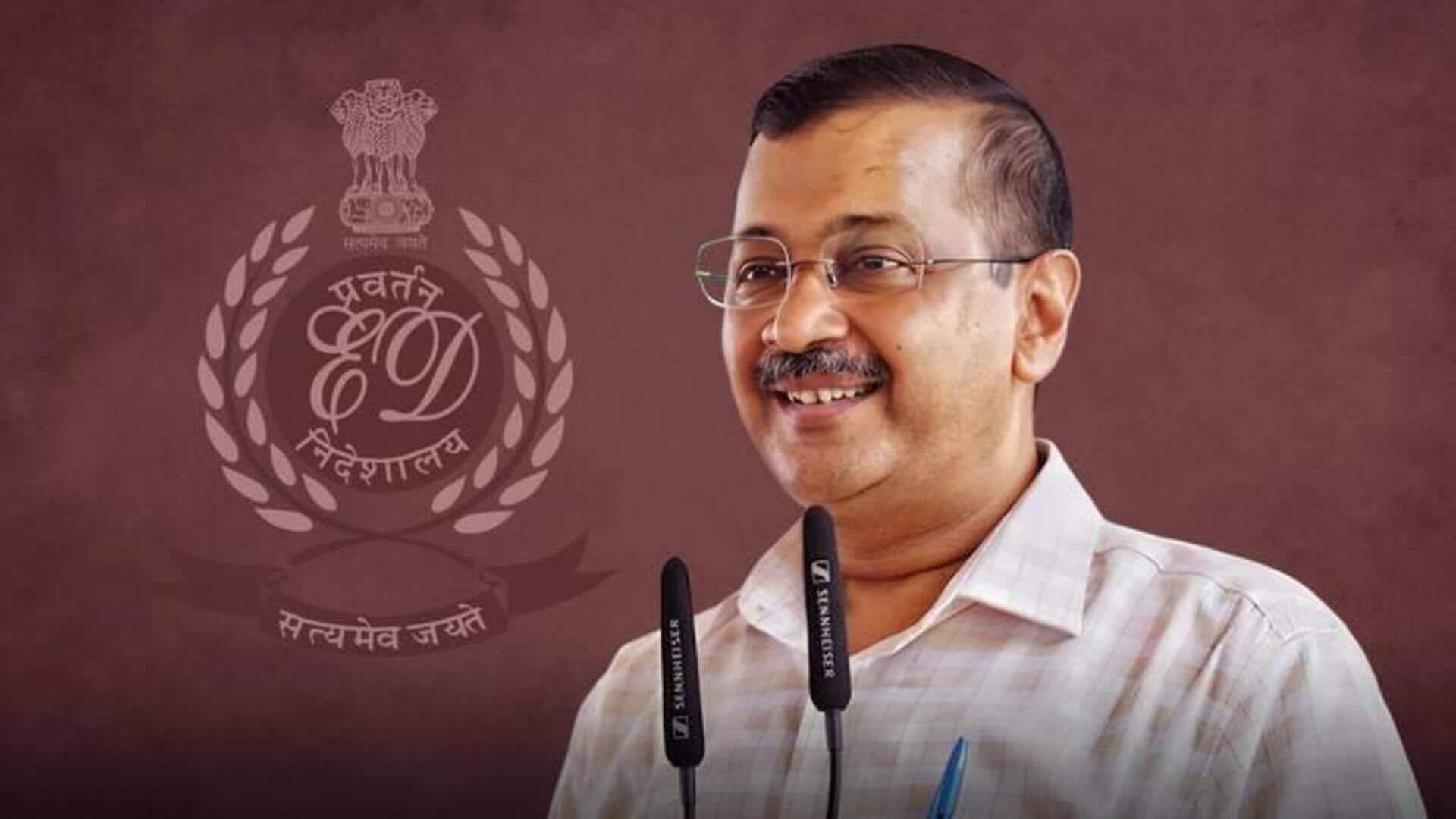
Delhi liquorgate: Arvind Kejriwal granted bail in ED summons case
What's the story
Delhi's Rouse Avenue court on Saturday granted bail to Delhi Chief Minister Arvind Kejriwal in the complaints filed by the Enforcement Directorate (ED) for not complying with the summonses issued to him.
He appeared before the court physically for the first time in connection with the Delhi excise policy scam.
Noting that the act committed by Kejriwal was bailable, the court granted him regular bail, instructing him to furnish bail bond of Rs. 15,000 and a surety of like amount.
Context
Why does this story matter?
The court summoned the Aam Aadmi Party (AAP) supremo after the ED reported that he had ignored eight summonses under the Prevention of Money Laundering Act (PMLA).
Kejriwal has ignored the summonses, alleging they are illegal.
While the court initially exempted him at first, after the ED's second complaint on March 6, it ordered Kejriwal to appear before the agency physically on Saturday.
Court appearance
Delhi court denied stay on ED summons
On Friday, the court refused to halt two orders summoning Kejriwal in complaints filed by the ED.
Kejriwal had stated there was no deliberated disobedience on his part, and he had always explained the reasons for his absence, which were deemed to be valid.
Special CBI Judge Rakesh Syal of Rouse Avenue Courts dismissed Kejriwal's temporary stay request in his petitions against the summons, instructing him to appear in person in court.
ED's stance
Reasons why the ED wants to question Kejriwal
The probe agency had filed the two complaints against Kejriwal for failing to comply with its summons asking him to join the investigation into the alleged Delhi excise policy scam.
To note, the ED wants to record Kejriwal's statement on matters like the formulation of policy, meetings held before it was finalized and approved, and the claims of bribery.
Previous arrest
Top AAP leaders arrested in money laundering case
Several top AAP members, including former Delhi Deputy Chief Minister Manish Sisodia and Rajya Sabha MP Sanjay Singh, have been apprehended by the ED in a money laundering case related to Delhi's now-defunct excise policy.
Kejriwal's name has appeared multiple times on ED's charge sheets, with the agency alleging that the accused individuals were in contact with the chief minister while drafting the excise policy.
He has, however, not been named as an accused in the charge sheet.
Liquor policy
What is Delhi Excise Policy scam case?
The Kejriwal-led Delhi government implemented the revamped 2021-22 liquor excise policy in November 2021.
However, amid extensive corruption allegations, it decided to scrap the policy less than a year later.
Central probe agencies alleged that wholesaler profit margins were artificially boosted to 12% from 5%. Furthermore, they also claimed that the regulation promoted cartelization and benefited those ineligible for liquor licenses for financial gain.